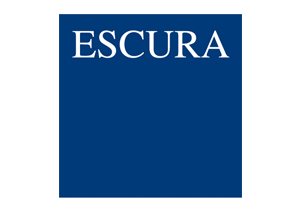The Spanish legal system transposed Directive (EU) 2018/851 through the entry into force of Law 7/2022 (LRSC) “to promote a circular economy by revising the current regulations on waste and contaminated land”, and the “Real Decreto 1055/2022”, which revised the Spanish regulations on packaging and packaging waste.
In summary, the main changes are as follows:
1. Restrictions on certain types of single-use plastic products.
2. Adoption of preventive measures related to waste.
3. Obligations in the production, possession and management of waste.
4. Extended producer responsibility also for waste (including packaging waste) and packaging.
5. Plastic tax.
6. Tax on landfilling, incineration and co-incineration of waste.
In this circular we’ll set out, briefly, how the plastic tax works and the consequences for enterprises that manufacture, export or import plastics goods or products packaged with plastics.
How does it work?
The plastic tax took effect on January 1, 2023, and the taxable base is formed by the non-recycled plastic expressed in kilograms. The tax rate will be € 0.45 per kilogram.
Cases in which the tax applies:
• In production, import into Spain and intra-Community purchase of non-reusable plastic packaging (or packaging containing plastic), whether full or empty, for end use within the Spanish market;
• Includes both packaging materials (empty) and packaged products;
• Applies to primary, secondary and tertiary packaging (semifinished products such as films, caps and closures, as well as those used for the presentation and marketing of products, will also be included in taxable goods).
• Containers necessary for the operation of the product itself throughout the product's useful life are not included (e.g., plastic ballpoint pen pens will not be taxed, nor will garbage bags, lighters or deodorant sticks, etc.)
Some practical examples:
Spain taxes the plastic water bottle (primary packaging), the plastic in the 6-packs of bottles (secondary), and the film that holds large quantities of bottles together (tertiary). Although the water bottle could be recycled or would be recyclable, it’s not designed and intended to be reused in the Marketplace, that is not its purpose.
N.B. In Spain, only the percentage of non-recycled plastic in the packaging materials are taxed, not all packaging containing plastic.
Exemptions:
The law provides for certain cases of non-taxation, including:
• The intra-community purchase or import of products subject to the tax when they don’t exceed 5 kg of plastic per month.
• The manufacture of containers that are destroyed or intended for sale outside Spain.
• Products intended for sanitary, medical use and those not designed to be delivered as goods.
• Polymeric dyes, paints, lacquers and adhesives.
• Plastics recycled both chemically and mechanically.
Obligations:
• Taxpayers must register with a territorial registry and obtain a “plastics identification” code (except for importers and intra-EU buyers who don’t exceed a threshold of 5 kg of plastics per month).
• Taxpayers not resident in Spain must appoint a representative who must register with the above registry.
• In imports, the weight of non-recycled plastic in the customs declaration (clearance will go through Customs) must be indicated.
• The settlement period will be monthly or quarterly, depending on the taxpayers' settlement period in VAT.
• Producers must keep records of the products obtained, while intra-EU purchasers will have to keep stock records. These books will have to be filed with the tax agency every quarter (or every month, in case).
Who has to assume the tax?
In cases of first sale after production: the manufacturer, who must pass on the tax to his customer by including the relevant tax information in the invoice for the sale of the product (upon first delivery).
In cases of intra-community purchase or import: the buyer, who must bear and pay the tax.
So, the manufacturer will be obliged to enter the kilograms of plastic delivered and the relevant tax, while the purchaser can ask his supplier to specify on the invoice the kilograms of non-recycled plastic included in the product, as well as the tax paid for these products.
Finally, in the case of irregular possession (understood as the possession, marketing, transportation or use in Spanish territory of taxable products without proof of their manufacture, importation, intra-Community purchase or purchase in Spanish territory), the possessor or the person who transports or uses the said products shall be considered a taxpayer.
Practical considerations and examples:
a) Spanish manufacturer sells the product to another EU or non-EU country: no taxation.
b) Spanish manufacturer A sells to Spanish company B for sale to other EU or non-EU country: A pays the tax; B has to claim refund from the Tax Agency (remind that the manufacturer transfers the tax to the purchasing company.
c) Intra-EU acquisition or import by Spanish company (B), which sends the products to other EU or non-EU country:
d) “Fast” shipment: exemption from tax.
e) "Slow" sending (assess on a case-by-case basis, before declarations): B pays tax and claims deduction from subsequent tax.
In conclusion, there are many variables depending on the type of packaging and trading system, so it is recommended that companies obtain personalized consulting.









